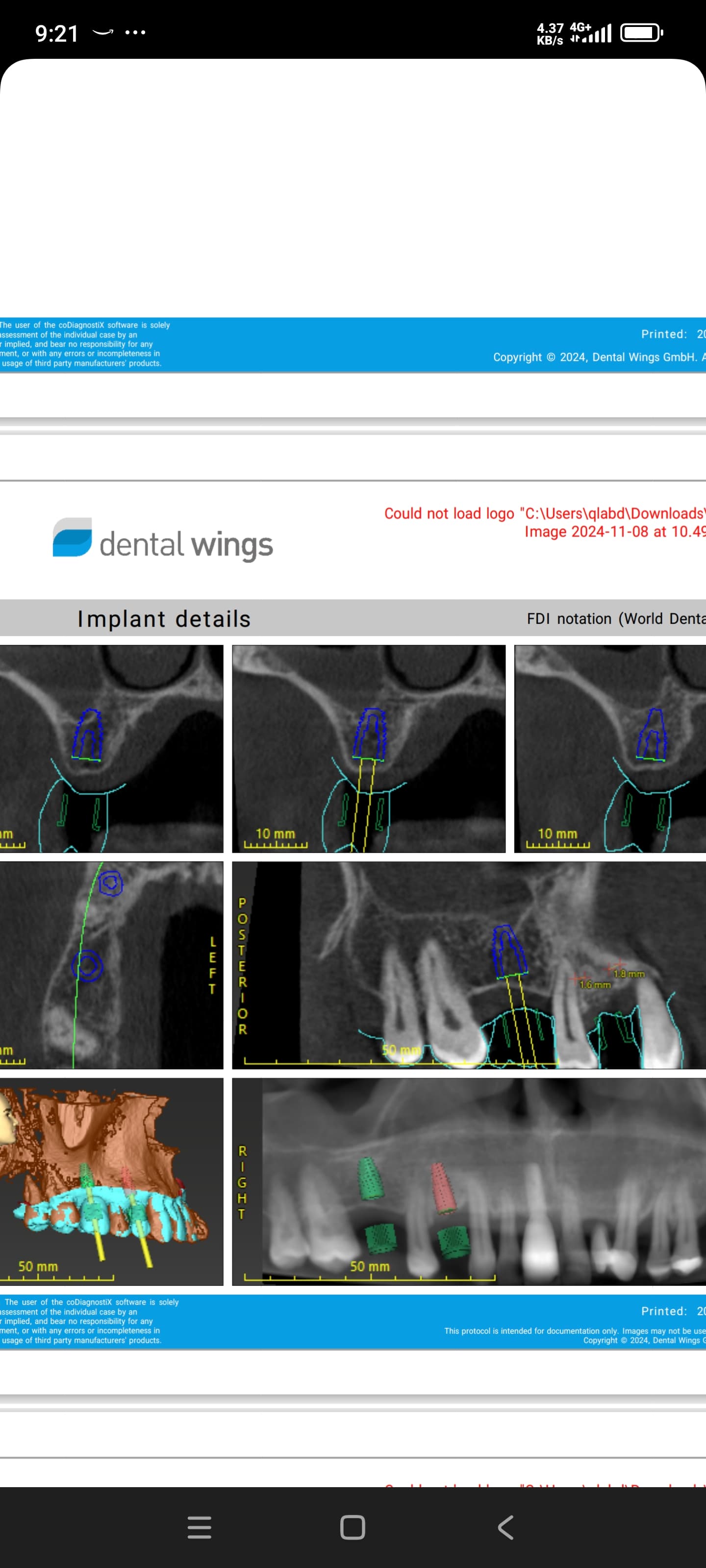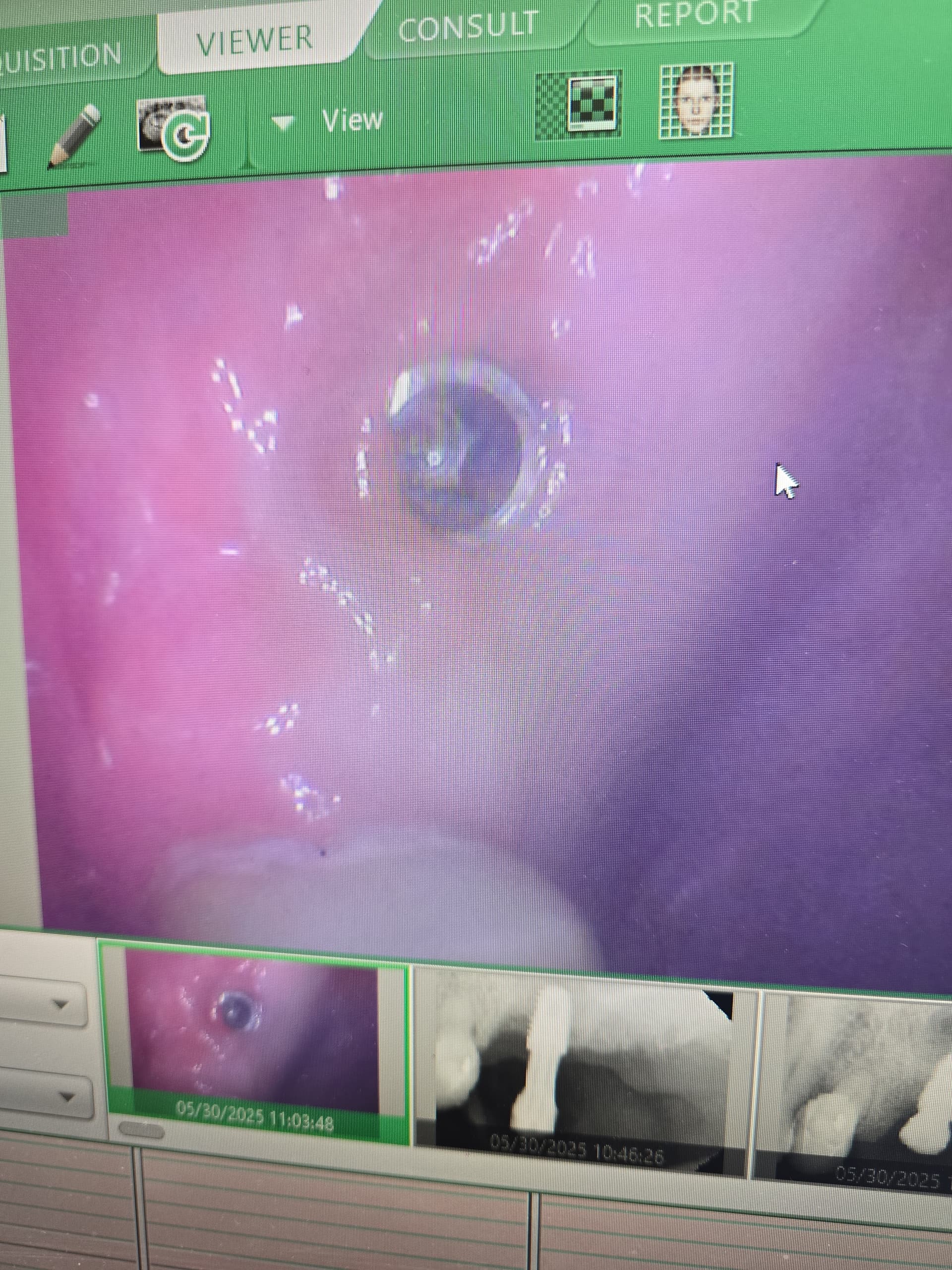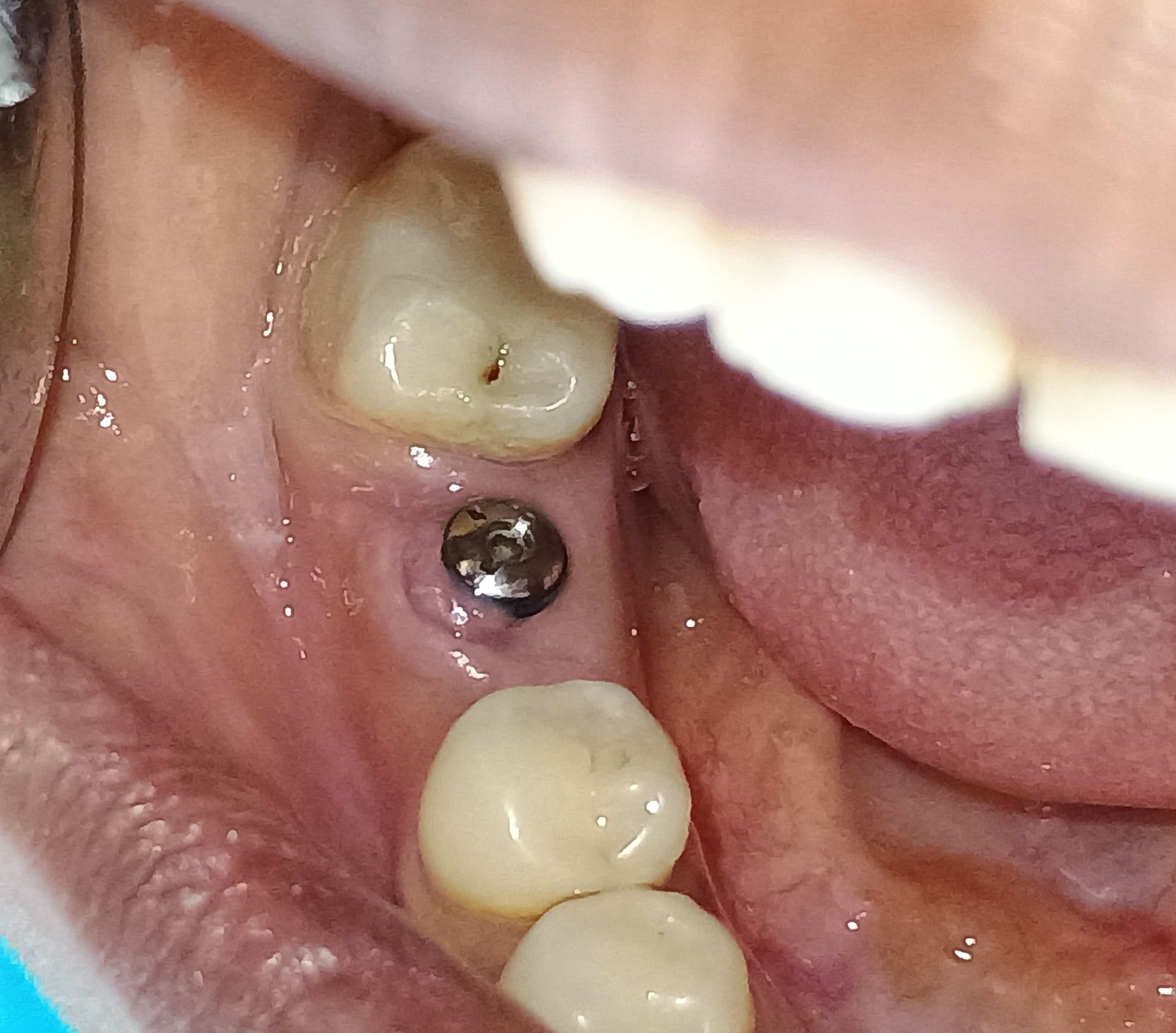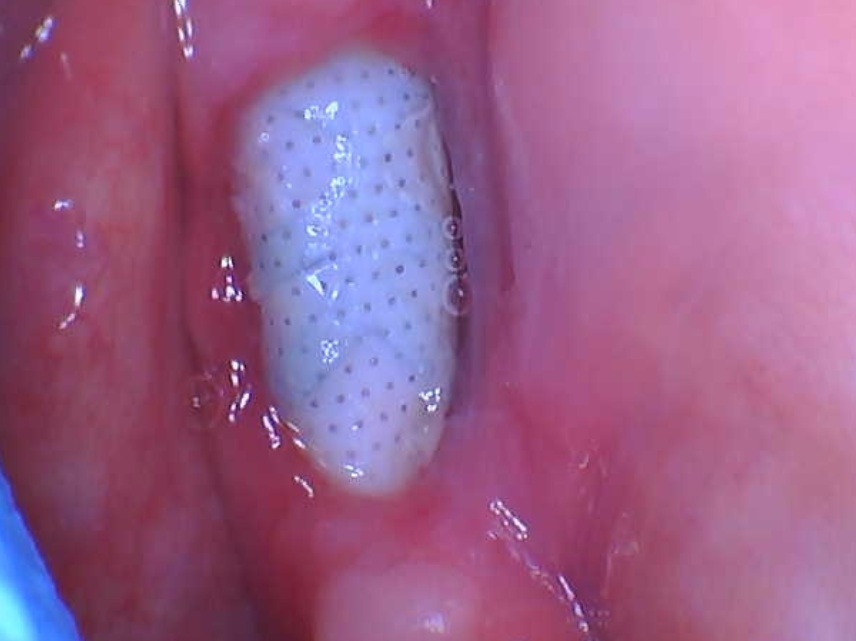Class III Malocclusion patient with MS: how would you treat this?
My patient is a 67 year old female with extensive dry mouth and rampant caries. She has a medical history of MS and our plan at this time is to extract all the teeth and place immediate full upper and lower dentures. I have presented the option of orthognathic surgery to correct her jaw relationship but she is not in agreement to have that. We have discussed implants but I wasn’t sure at the time with her skeletal relationship if that is possible. I would like to know if implant supported teeth are an option without orthognathic surgery and how would the prosthetics be designed. Finances are not an issue. How would you treat this case?












17 Comments on Class III Malocclusion patient with MS: how would you treat this?
New comments are currently closed for this post.
Alex Zavyalov
8/9/2018
Your plan is "to extract all teeth"? What for??? You did not mention a word about the main reason in selecting any medical approach: the patient's complaints. If she has a mastication problem, simply correct it with fixed bridges in the posterior area. If she has cosmetic problems, you can cover the frontal teeth with crowns too.
Elliot
8/9/2018
I think if you remove all those teeth and make full dentures not only will you be facing a malpractice suit but action against your license
For malfeasance. Fill the teeth and then decide what to do.
Richard Hughes DDS
8/9/2018
Why?
Elliot
8/9/2018
Sorry Dr. Hughes, why what? Please be more specific if you are asking me.
Richard Hughes DDS
8/9/2018
You may want to take a much more conservative approach. The other doctors make a compelling point
ROBERT L. SELDERS DDS APD
8/9/2018
I WOULD EXTRACT THOSE NON-RESTORABLES , SRP THE REMAINING AND REPLACE THOSE THAT WILL BE MISSING WITH FIXED OR REMOVABLE
Dr. Gerald Rudick
8/9/2018
Do as little as possible.....just make her comfortable....MS is a very serious and debilitating disease, she does not need dental problems on top of it.
FFJ
8/9/2018
Are you seriously considering extracting all these teeth???
NPDMD
8/9/2018
Lots of good advice here. With severe xerostomia, this patient will be miserable with full dentures, and will make you equally miserable. Conservative approach here!!
Francis G Serio
8/9/2018
Nice of you to ask. Now please listen to the sage advice that has been offered. From what I can see, the caries is treatable. In the posterior if aesthetics is not a major concern, consider some silver diamine fluoride as a preventive measure. Fluoride trays. Biotene. Frequent recalls. Many ways to approach this. Conserve her teeth. Treat her mouth, not her wallet.
vnt
8/9/2018
pls someone enlighten me....what is MS?
Andy K
8/9/2018
From Wikipedia: “Multiple sclerosis (MS) is a demyelinating disease in which the insulating covers of nerve cells in the brain and spinal cord are damaged. This damage disrupts the ability of parts of the nervous system to communicate, resulting in a range of signs and symptoms, including physical, mental, and sometimes psychiatric problems. Specific symptoms can include double vision, blindness in one eye, muscle weakness, trouble with sensation, or trouble with coordination. MS takes several forms, with new symptoms either occurring in isolated attacks (relapsing forms) or building up over time (progressive forms). Between attacks, symptoms may disappear completely; however, permanent neurological problems often remain, especially as the disease advances.
There is no known cure for multiple sclerosis. Treatments attempt to improve function after an attack and prevent new attacks. Medications used to treat MS, while modestly effective, can have side effects and be poorly tolerated. Physical therapy can help with people's ability to function. Many people pursue alternative treatments, despite a lack of evidence of benefit. The long-term outcome is difficult to predict, with good outcomes more often seen in women, those who develop the disease early in life, those with a relapsing course, and those who initially experienced few attacks. Life expectancy is on average 5 to 10 years lower than that of an unaffected population.â€
Please have mercy for this patient. If you don’t have mercy in your heart, please refer her to other dentist.
Keeping her teeth as long as possible is the best for her.
Dale Gerke - BDS, BScDent
8/9/2018
The above comments are excellent advice and I am impressed that, despite this being a site primarily for implants, so many sensible opinions have been given.
Dry mouth syndrome is a dreadful condition for patients but also creates enormous problems for the treating dentists. While I understand the writer’s thoughts that if all the teeth are removed there can be no caries, the reality is that dry mouth and dentures are a disaster and to be blunt, the outcome if implants are placed is an unknown.
Unfortunately I have too many of these types of cases to treat and the truth is that there is no easy answer. However at all times practitioners have to remember that the proposed “cure†should not cause more problems than the initial presentation.
As I have stated many times, it is hard to give proper advice in this forum because we cannot ascertain all the facts (eg medical, dental, social, emotional, patient expectations and desires). However in this case, it seems to me that there is very reasonable periodontal support for the teeth, the caries does not seem outrageously bad, and there seems to be reasonable occlusal support. My experience is that usually malocclusions do not cause unacceptable problems in regards to chewing function if there are enough teeth present (and there are no caries or periodontal issues). I am not saying there are not issues caused by malocclusion, but usually chewing functions is possible. However to render significant malocclusion cases edentulous can make restoration of satisfactory function very difficult.
I would usually treat a patient such as described here by providing a full explanation of the problems and possible options. However the dentist needs to provide honest opinions on the options and not be swayed by financial gain or a desire to be heroic. My suggestion is always to complete “Phase 1†treatment – where I remove and treat all current pathology (as quickly and cheaply as possible – usually providing resin restorations and getting endo and periodontal problems sorted out). Thus the practitioner can establish a disease free base line and “buy time†in regards to how to more forward – which would be “Phase 2†involving elective, more complex work. By doing this, you gain patient trust and get to understand the likely outcomes of treatments (by assessing patient motivation and healing response – and in the case of MS, how easy is it to do acceptable restorative work on the patient due to access issues).
In this case, there does seems to be some doubt in regards to several teeth, so in the “Phase 2†period, you could consider extractions and placing implants after healing. If, over time, more extractions are required and implants are placed, then the operator will be in a good position to construct an implant retained prosthesis – whether it be dentures, hybrid bridges or crowns.
Lastly it would be important to consult with the patient’s medical physician in regards to the MS problem. Sadly if the prognosis is bad, then treatment may be best to “fit†the situation. Again, this is something that should be discussed with the patient before starting treatment.
Raul R Mena
8/9/2018
All of the above are very thoughtful advice given to the doctor asking for professional opinions.
I am sure that not only the patient is going to benefit from these postings, but the Dr. is also going to benefit from it.
asabernathy
8/10/2018
After reading all the comments I am happy that my initial reaction of NOOOOO! is shared. Doing nothing other than extracting as necessary is much kinder than dentures. A thoughtful plan of extracting teeth with the worst prognosis, restoring the ones with a good prognosis/ease of restoration, using silver diamine fluoride for incipient or hard to restore lesions, possible removable prostheses will serve this patient so much better.
Dr t. Soleimaani
8/11/2018
In fact i’m sure to advice keep patient teeth , Ihad several cases with ms , denristry treatment must do with no more pain .plz keep her teeth .
Neni
8/18/2018
I cant help but keep giggling😂I feel like the dentist just want to fish what are we going to say about it.Come onnn....














